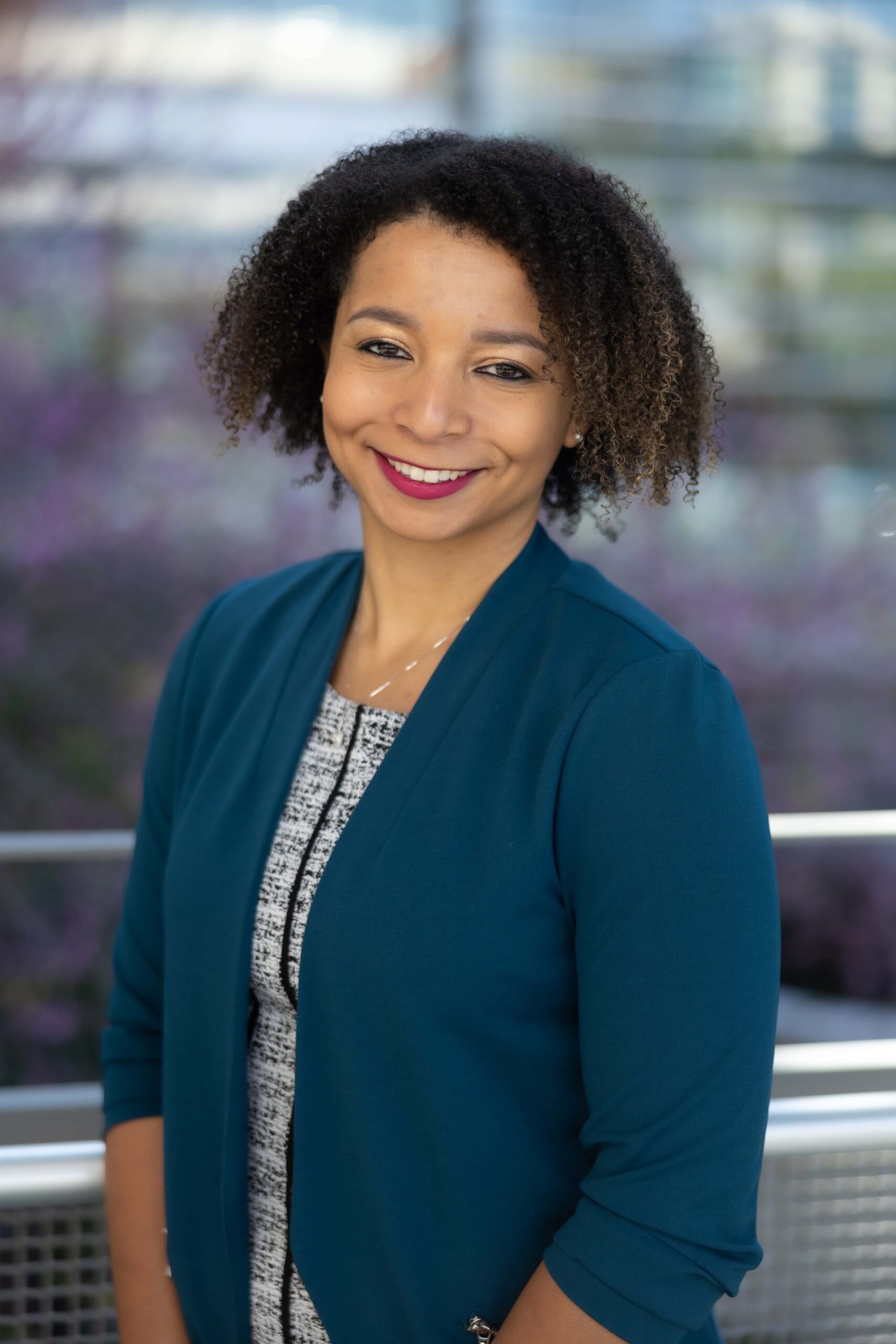
The Prevent Cancer Foundation has awarded UNC Lineberger’s Mya Roberson, PhD, MSPH, a two-year, $100,000 grant to support her study to develop and pilot culturally responsive educational content aimed at increasing cancer family history sharing, genetic testing knowledge, and awareness among Black families. The goal is to increase cancer prevention and early detection among Black Americans.
We Got Us: Promoting Cancer Family History Sharing Among Black Americans is an academic-community partnership designed to promote cancer prevention and early detection by addressing barriers to family health history sharing as well as genetic testing uptake within the Black community.
The grant will support a collaboration between Roberson and Laura Crandon, founder and president of Touch4LifeTM, an organization whose mission is to increase the breast health IQ of Black, Indigenous, and people of color as well as underserved communities to eliminate disparities in breast cancer outcomes by advocating for biomarker and genetic testing parity. This collaboration was born in part from Roberson and Crandon’s participation in a UNC Lineberger webinar entitled “Engaging the Generations: Genetics, Genomics & Black Families” during the FDA’s National Black Family Cancer Awareness Week last summer.
“We will use the grant to develop community-driven and culturally responsive tools for improving cancer family history sharing among Black families,” said Roberson, assistant professor of health policy and management at UNC Gillings School of Global Public Health and a member of the UNC Lineberger Cancer Prevention and Control research program. “This grant funding catalyzes our community-academic research partnership to promote cancer risk management and early detection in a population affected by cancer health inequities.”
Roberson and Crandon, the principal investigator and co-investigator, respectively, will use a quantitative and qualitative mixed methods study design to assess the perceived benefits and barriers of cancer family history sharing among Black adults and pilot test an intervention to affect self-efficacy and encourage cancer family history sharing
“I hope this project will demonstrate the power of seeking meaningful collaboration beyond the walls of academia for the reduction of cancer inequities,” Roberson said.
